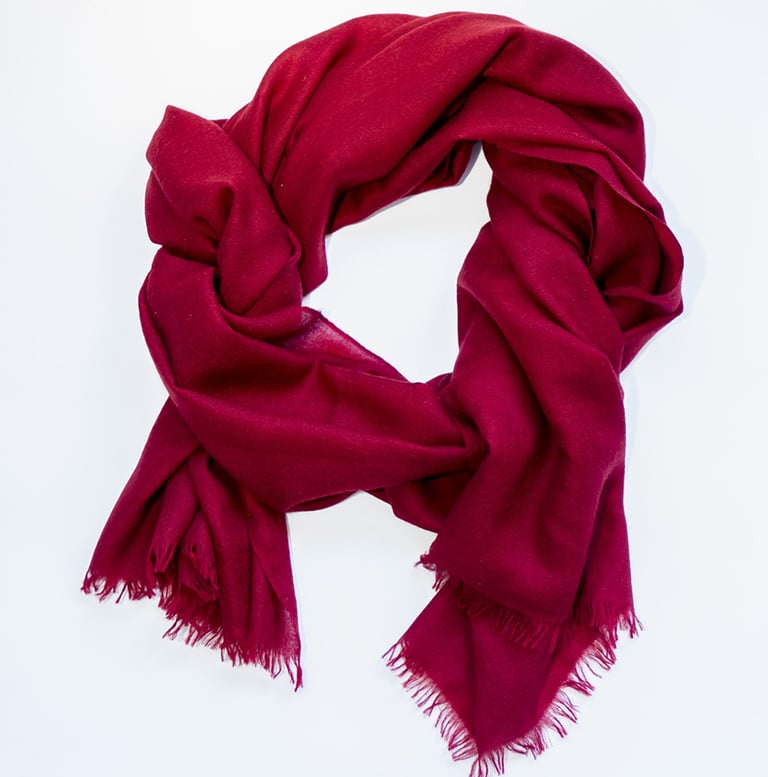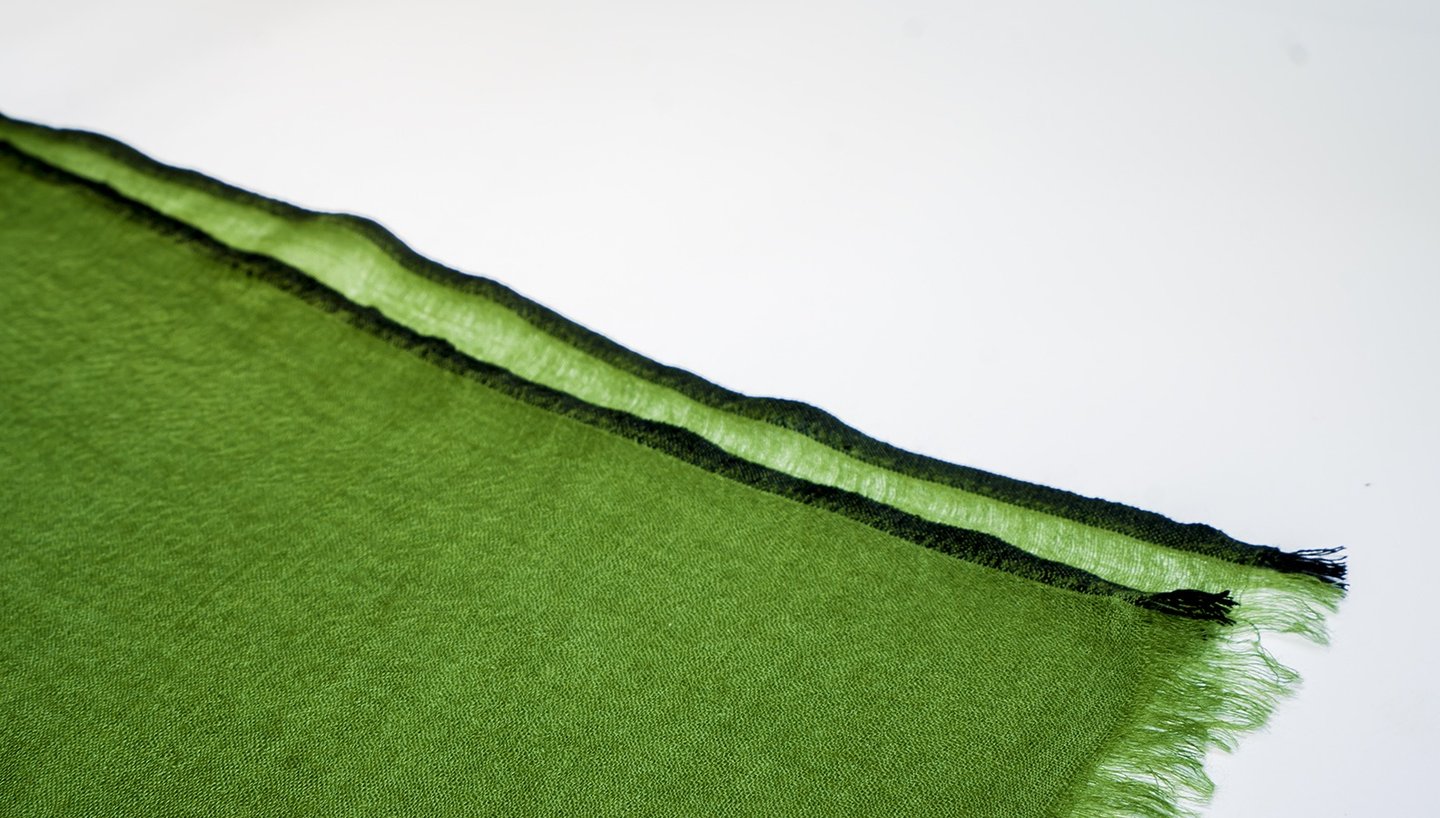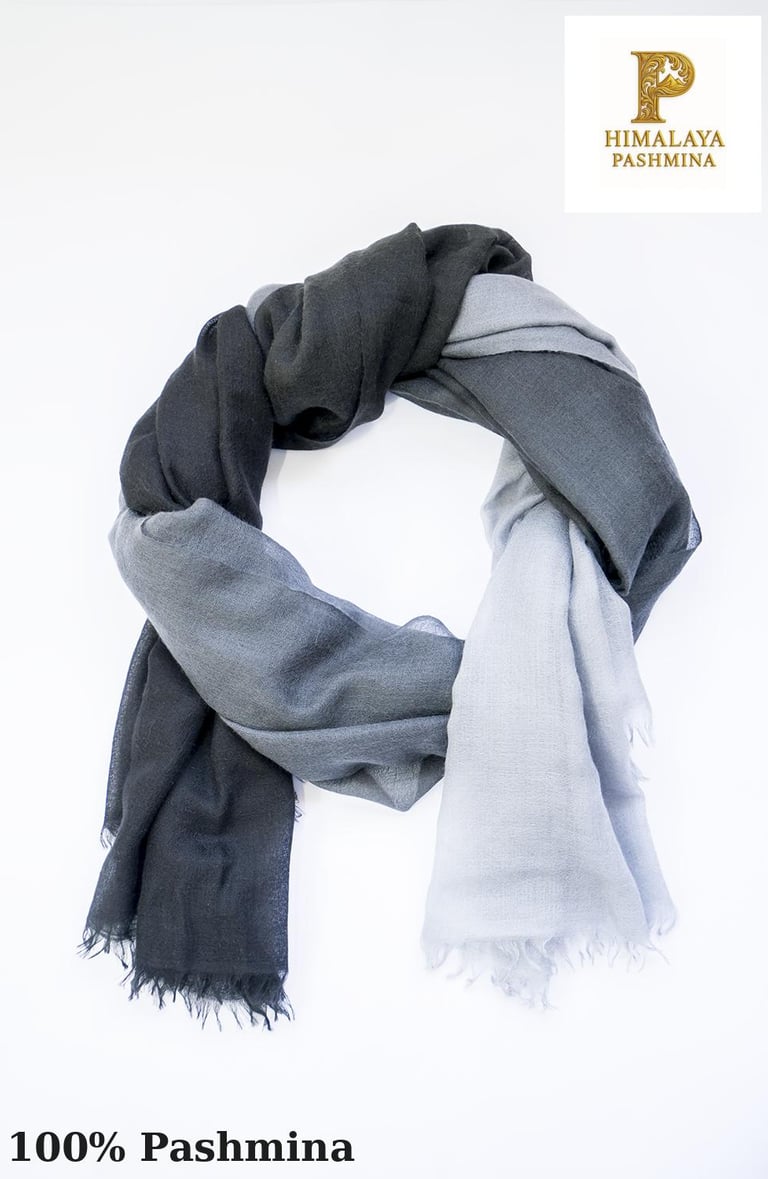What Is Pashmina? Origins, Meaning & True Luxury
CRAFTSMANSHIP & HERITAGE
5/30/20255 min read
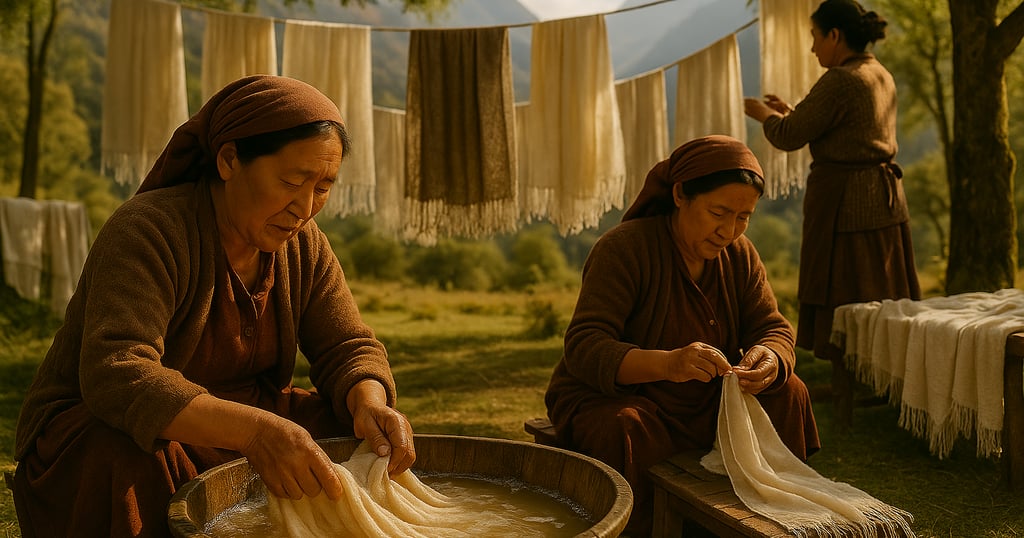

What Is a Pashmina Shawl? (A Complete Guide)
What Is a Pashmina Shawl? The Basics
What Does the Name Pashmina Mean?
Is Pashmina a Goat or a Shawl?
Is There a Difference Between a Shawl and a Pashmina?
Are Pashmina Shawls Cultural?
Is Pashmina Silk?
What Makes a Pashmina So Special?
Are Goats Killed for Pashmina?
What Does 100% Pashmina Mean?
Care Tips for Your Pashmina Shawl
Why Choose a Pashmina Shawl from Himalaya Pashmina?
AND, FAQ: (Frequently Asked Questions)
What Is a Pashmina Shawl? The Baics
What Does the Name Pashmina Mean?
The word “Pashmina” originates from Persian and means “made from wool.” It refers to the finest wool sourced from Chyangra goats in the Himalayan region.
Is Pashmina a rare wool or a normal Shawl?
Pashmina is the wool of the Chyangra goats that live in the Himalayas. However, the term is often used to refer to the shawl itself.
Is There a Difference Between a Shawl and a Pashmina?
Yes, there is a clear difference. A shawl is a general term for a wrap worn around the shoulders or neck and can be made from various materials.
A Pashmina shawl, on the other hand, is made exclusively from the fine wool of Chyangra goats. This wool measures only 12–16 microns in diameter – significantly finer than regular sheep’s wool, which is typically 20–25 microns.
This is the defining difference: a Pashmina shawl is the luxury version, offering unmatched softness, lightness, and warmth.
Are Pashmina Shawls Cultural?
Absolutely. Pashmina shawls hold deep cultural significance, especially in Nepal and Kashmir. They’ve been handwoven for centuries and are an essential part of the cultural heritage.
In Nepal’s mountain regions, women wear Pashmina shawls during special occasions such as weddings and religious festivals. They are often adorned with intricate, traditional embroidery representing local stories and symbols.
Today, Pashmina shawls are a global symbol of elegance and cultural richness – blending centuries-old tradition with modern style.
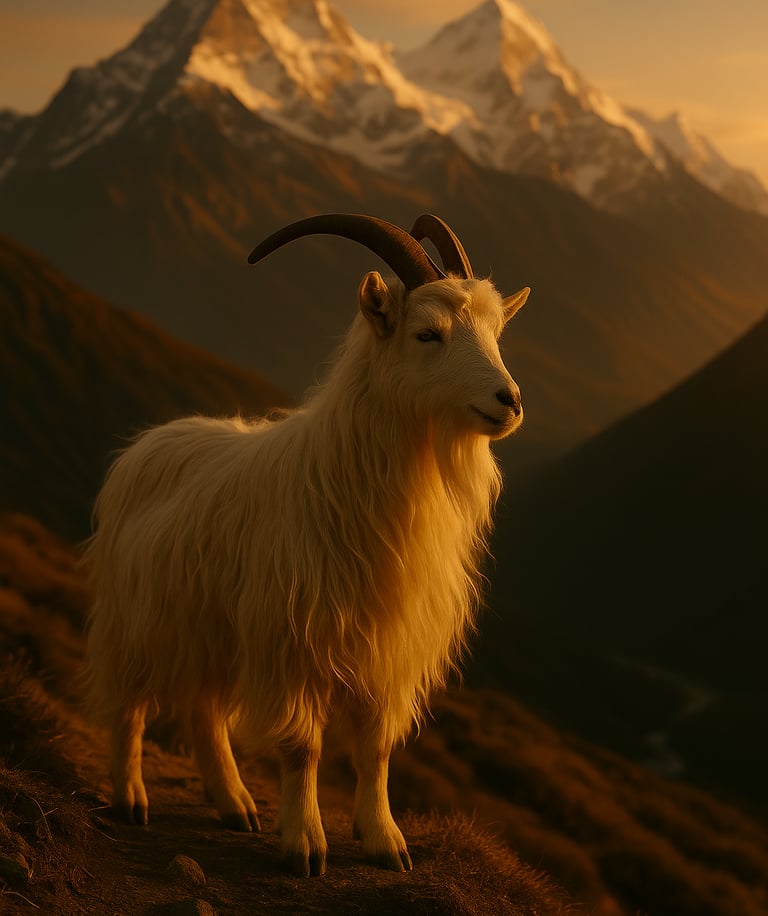

A Pashmina shawl is a premium wrap made from the fine wool of Chyangra goats (also known as Changthangi), native to the Himalayan region. These goats live at altitudes above 4,000 meters in the harsh climate of Nepal and surrounding areas.
Is Pashmina Silk?
No, Pashmina is not silk. It is the wool of Chyangra goats – a natural material from the Himalayas with its own unique qualities.
Some shawls on the market are blends, e.g., 70% Pashmina and 30% silk. The silk adds sheen and durability.
At Himalaya Pashmina, however, we offer only 100% pure Pashmina shawls when mentioned. This way, you can enjoy the authentic softness and natural warmth of this exquisite material in its purest form.
What Makes a Pashmina So Special?
The softness of Pashmina wool is exceptional – at just 12–16 microns, it’s significantly finer than standard wool or even regular cashmere.
Are Goats Harmed for Pashmina?
Absolutely not! The harvesting of Pashmina wool is a completely natural and gentle process. Chyangra goats grow a dense undercoat during winter, which they naturally shed in spring.
Local herders gently comb this fine undercoat – a process that not only doesn’t harm the animals but is actually beneficial to their health. Without this combing, the loose wool could mat and lead to skin issues.
At Himalaya Pashmina, we are committed to ethical and sustainable practices. Our shawls are made only from wool sourced with the utmost respect for the animals and the environment.
Photo- Himalaya Pashmina
What Does 100% Pashmina Mean?
A shawl labeled 100% Pashmina is made exclusively from the pure, unblended wool of Chyangra goats. This is the highest-quality product, with no silk or synthetic additives.
Care Tips for Your Pashmina Shawl
Gentle Cleaning: Wash only when necessary and always by hand in cold water with a mild wool detergent.
No Wringing: Gently squeeze out excess water without wringing or twisting.
Flat Drying: Lay flat on a towel to air dry, away from direct sunlight or heat.
Careful Ironing: If needed, iron on the lowest setting through a damp cloth.
Proper Storage: Store in a dry, clean place and protect from moths with natural repellents like cedarwood.
With proper care, your Pashmina shawl will become even softer over time and remain a cherished companion for many years.
Why Choose a Pashmina Shawl from Himalaya Pashmina?
Authentic Craftsmanship from Nepal
We offer only handcrafted, 100% pure Pashmina shawls from Nepal. Our weavers follow time-honored techniques passed down through generations.
Top Quality Guaranteed
Each of our shawls is made from the finest Chyangra goat wool, carefully selected and handwoven into an exquisite accessory. We guarantee the authenticity and quality of every single piece.
Sustainable and Ethical
We work directly with local communities in Nepal and ensure that the wool is sourced ethically and sustainably. By purchasing a Himalaya Pashmina shawl, you support fair wages and eco-friendly practices.
Timeless Elegance
A Pashmina shawl from Himalaya Pashmina is not a fast-fashion item – it’s a timeless piece that will be with you for years to come. An investment in quality and style.
FAQ: Frequently Asked Questions About Pashmina Shawls
Q: What is a Pashmina shawl?
A: A Pashmina shawl is a high-quality wrap made from the fine wool of Chyangra goats from Nepal, known for its exceptional softness and warmth.
Q: What does the name Pashmina mean?
A: Pashmina comes from Persian and means “made from wool.” It refers to the precious wool of Chyangra goats.
Q: Is Pashmina a goat or a shawl?
A: Pashmina is the wool from Chyangra goats, but it’s commonly used to refer to the shawl itself.
Q: Is there a difference between a shawl and a Pashmina?
A: Yes, a genuine Pashmina shawl is made from fine Chyangra wool, while regular shawls can be made from various materials.
Q: Are Pashmina shawls cultural?
A: Yes, they are deeply rooted in Nepalese and Kashmiri culture and symbolize tradition and craftsmanship.
Q: Is Pashmina silk?
A: No, Pashmina is wool, not silk. Himalaya Pashmina offers only 100% pure Pashmina shawls without silk blends.
Q: What makes a Pashmina special?
A: Its unmatched softness, lightness, and warmth make it unique – a timeless accessory of the highest quality.
Q: Are goats killed for Pashmina?
A: No, the wool is gently combed from the goats’ naturally shed undercoat – a process that is beneficial to their health.
Q: What does 100% Pashmina mean?
A: It means the shawl is made exclusively from pure Chyangra goat wool, without any silk or other materials.
Q: How do I care for my Pashmina shawl?
A: Hand-wash gently and lay flat to dry. Store in a clean, dry place protected from moths.
Conclusion: Your Path to a Genuine Pashmina Shawl
Now you know what a Pashmina shawl truly is: a luxurious wrap that combines tradition, quality, and elegance. We’ve answered all your questions – from the meaning of the name to the ethical sourcing of its prized wool.
Explore the world of authentic Pashmina shawls at Himalaya Pashmina! Our collection includes a wide range of colors and designs – each one a handcrafted piece from Nepal.
👉 [SHOP NOW] – Treat yourself to the luxury of a genuine Pashmina shawl from Himalaya Pashmina and experience the difference that centuries-old craftsmanship and top-tier quality make.
Elegance
Timeless pashmina scarves for conscious living.
Contact
Sustainability
Himalaya Pashmina© 2025. All rights reserved.
Legal
info@himalayapashmina.de
Edisonstr. 56, 12459 Berlin-Oberschöneweide
+4917643486144
Bista Suresh ( Himalaya Pashmina)
